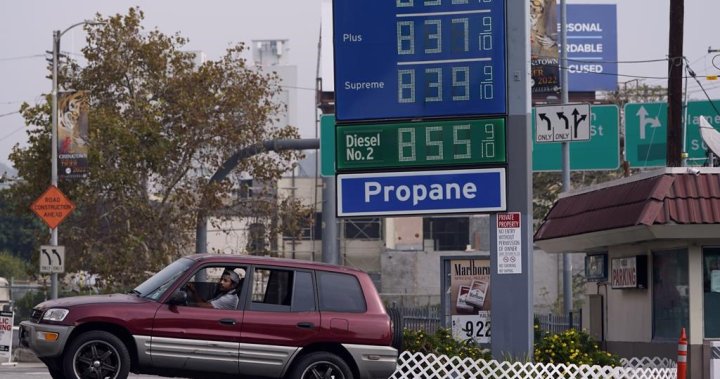
U.S. inflation eases to 7.7% in October despite rise in energy prices
Global News
The news raises the possibility that the Fed could slow its rate hikes -- a prospect that sent U.S. markets soaring.
Price increases moderated in the United States last month in the latest sign that the inflation pressures that have gripped the nation might be easing as the economy slows.
Consumer inflation reached 7.7% in October from a year earlier and 0.4% from September, the government said Thursday. The year-over-year increase, down from 8.2% in September, was the smallest rise since January. Stripping out volatile food and energy prices, “core” inflation rose 6.3% in the past 12 months and 0.3% from September.
The numbers were all lower than economists had expected.
Helping to ease inflation from September to October were used car prices, which dropped for a fourth straight month. Clothing and medical care also fell. Food price increases slowed. By contrast, energy prices rebounded in October after declines in August and September.
Even amid a tentative easing of inflation, the Federal Reserve will likely continue raising interest rates to cool the economy and stem inflation. Yet data released Thursday raises the possibility that the Fed could at least slow its rate hikes — a prospect that sent U.S. markets soaring.
“We expect this to mark the start of a much longer disinflationary trend that we think will convince the Fed to halt its (hikes) early next year,” said Paul Ashworth, chief North American economist at Capital Economics, a consulting firm. “With supply shortages normalizing, deflationary pressure is now finally showing up.”
Many economists fear that the central bank’s maneuvers could spark a recession by next year. The Fed has raised its benchmark interest rate six times in sizable increments this year, heightening the risk that the cost of borrowing money for homes, autos and other big-ticket items, will tip the world’s largest economy into recession.
Lorie Logan, president of the Federal Reserve Bank of Dallas, said Thursday’s figures “were a welcome relief,” but added “there is still a long way to go.”


